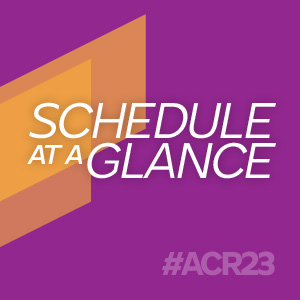Poster Session C
Professional development and education
Session: (2061–2088) Professional Education Poster
2082: Delivery of Rheumatology Education to Internal Medicine Residents in Rwanda: Evaluation of a New Virtual Rheumatology Course Supplemented by On-site Clinical Teaching
Tuesday, November 14, 2023
9:00 AM - 11:00 AM PT
Location: Poster Hall
- CH
Carol Hitchon, MD, MSc
University of Manitoba
Winnipeg, MB, CanadaDisclosure information not submitted.
Abstract Poster Presenter(s)
Carol Hitchon1, Becky Abdissa Adugna2, Richard Akintayo3, Paul Caldron4, Ines Colmegna5, Ida Dey6, Paul McGill7, Andres Ponce8, Rosie Scuccimarri9, Mohammed Tikly10, Girish Mody11 and Michele Meltzer12, 1University of Manitoba, Winnipeg, MB, Canada, 2Addis Ababa University, Addis Ababa, Ethiopia, 3Dumfries and Galloway Royal Infirmary, Edinburgh, United Kingdom, 4Arizona Arthritis & Rheumatology Associates, P.C. - Emeritus (no longer in patient care role), Depoe Bay, OR, 5The Research Institute of the McGill University Health Centre, Montréal, QC, Canada, 6University of Ghana Medical School, Accra, Ghana, 7Department of Rheumatology Stobhill Hospital, Glasgow, United Kingdom, 8Jefferson, Philadelphia, PA, 9McGill University/Montreal Children's Hospital, Montréal, QC, Canada, 10Wits University, Johannesburg, South Africa, 11University of KwaZulu-Natal, Durban, South Africa, 12Thomas Jefferson University/Rheumatology for All,Inc., Philadelphia, PA
Background/Purpose: There exists a critical lack of rheumatology resources in many parts of the world including sub-Saharan African countries. As a result, in these countries, rheumatology education is limited and often provided by specialists with variable rheumatology expertise. As an initial step to improving rheumatology capacity in Africa, our organization "Rheumatology For All" (RFA) has developed a rheumatology program for Internal Medicine (IM) Residents that can be delivered in person or virtually. Here we describe the evolution, implementation and acceptance of the virtual educational program in Rwanda.
Methods: We delivered a virtual rheumatology curriculum course for second year IM residents (approximately 30/year) in the University of Rwanda, Rwanda in 2021,2022 and 2023.Weekly lectures and tutorials were delivered (in English) over 16 weeks by rheumatology faculty from Ghana, Ethiopia, South Africa, United Kingdom, United States and Canada. In 2021, prerecorded lectures were uploaded to a central course website for students to review in preparation for weekly interactive online tutorials. In 2022 and 2023, there were no prerecorded lectures only the interactive lectures and tutorials. Additional teaching material including customized videos demonstrating musculoskeletal exam techniques and reading material was uploaded to a central website. In 2023, the virtual lecture series was followed by a week-long program delivered in Kigali by 4 faculty (CH, IC, MM, RS) consisting of supplementary lectures, case-based tutorials and clinical skill teaching. We evaluated virtual course experiences from 29 responding students (13 in 2021; 12 in 2022; 4 in 2023) and evaluated on-site teaching experiences from 10 students.
Results: Feedback from 2021 was incorporated into the 2022 and 2023 courses when feasible. Only 8/29 (27%) were able to attend all virtual lectures. All students found lectures and tutorials beneficial, especially physical exam videos. Half (52%) wanted more interaction with faculty (2021 vs 2022 p=NS).Some students reported difficulty accessing online content, though this improved in 2022 after switching to a university-based platform. Case-based discussions were considered important and culturally relevant images were appreciated. Students requested more clinical cases, including student-led case presentations even if this extended course/tutorial duration. While appreciative of the online course, many students requested on-site training to allow more face-to face discussion, bedside teaching, and hands-on demonstration of rheumatology skills. Student comment: "… we hope this will continue for the coming years and probably not only virtually but also [face-to-face] … It would be good if we share cases … (though we don't have all investigations) …" At the end of the courses, students' confidence level with rheumatology cases was good with a median rating of 7/10 (range 5-9) for the virtual course and 7.5 (range 5-8) for the in-person course.
Conclusion: The RFA virtual rheumatology course is a feasible means to provide rheumatology education to African medical students but does not replace the need for in person teaching. This program will continue to evolve in response to regional needs.
C. Hitchon: Astra Zeneca, 1, Pfizer, 5; B. Adugna: None; R. Akintayo: None; P. Caldron: None; I. Colmegna: None; I. Dey: Roche, 6; P. McGill: None; A. Ponce: None; R. Scuccimarri: None; M. Tikly: None; G. Mody: None; M. Meltzer: None.
Background/Purpose: There exists a critical lack of rheumatology resources in many parts of the world including sub-Saharan African countries. As a result, in these countries, rheumatology education is limited and often provided by specialists with variable rheumatology expertise. As an initial step to improving rheumatology capacity in Africa, our organization "Rheumatology For All" (RFA) has developed a rheumatology program for Internal Medicine (IM) Residents that can be delivered in person or virtually. Here we describe the evolution, implementation and acceptance of the virtual educational program in Rwanda.
Methods: We delivered a virtual rheumatology curriculum course for second year IM residents (approximately 30/year) in the University of Rwanda, Rwanda in 2021,2022 and 2023.Weekly lectures and tutorials were delivered (in English) over 16 weeks by rheumatology faculty from Ghana, Ethiopia, South Africa, United Kingdom, United States and Canada. In 2021, prerecorded lectures were uploaded to a central course website for students to review in preparation for weekly interactive online tutorials. In 2022 and 2023, there were no prerecorded lectures only the interactive lectures and tutorials. Additional teaching material including customized videos demonstrating musculoskeletal exam techniques and reading material was uploaded to a central website. In 2023, the virtual lecture series was followed by a week-long program delivered in Kigali by 4 faculty (CH, IC, MM, RS) consisting of supplementary lectures, case-based tutorials and clinical skill teaching. We evaluated virtual course experiences from 29 responding students (13 in 2021; 12 in 2022; 4 in 2023) and evaluated on-site teaching experiences from 10 students.
Results: Feedback from 2021 was incorporated into the 2022 and 2023 courses when feasible. Only 8/29 (27%) were able to attend all virtual lectures. All students found lectures and tutorials beneficial, especially physical exam videos. Half (52%) wanted more interaction with faculty (2021 vs 2022 p=NS).Some students reported difficulty accessing online content, though this improved in 2022 after switching to a university-based platform. Case-based discussions were considered important and culturally relevant images were appreciated. Students requested more clinical cases, including student-led case presentations even if this extended course/tutorial duration. While appreciative of the online course, many students requested on-site training to allow more face-to face discussion, bedside teaching, and hands-on demonstration of rheumatology skills. Student comment: "… we hope this will continue for the coming years and probably not only virtually but also [face-to-face] … It would be good if we share cases … (though we don't have all investigations) …" At the end of the courses, students' confidence level with rheumatology cases was good with a median rating of 7/10 (range 5-9) for the virtual course and 7.5 (range 5-8) for the in-person course.
Conclusion: The RFA virtual rheumatology course is a feasible means to provide rheumatology education to African medical students but does not replace the need for in person teaching. This program will continue to evolve in response to regional needs.
C. Hitchon: Astra Zeneca, 1, Pfizer, 5; B. Adugna: None; R. Akintayo: None; P. Caldron: None; I. Colmegna: None; I. Dey: Roche, 6; P. McGill: None; A. Ponce: None; R. Scuccimarri: None; M. Tikly: None; G. Mody: None; M. Meltzer: None.



